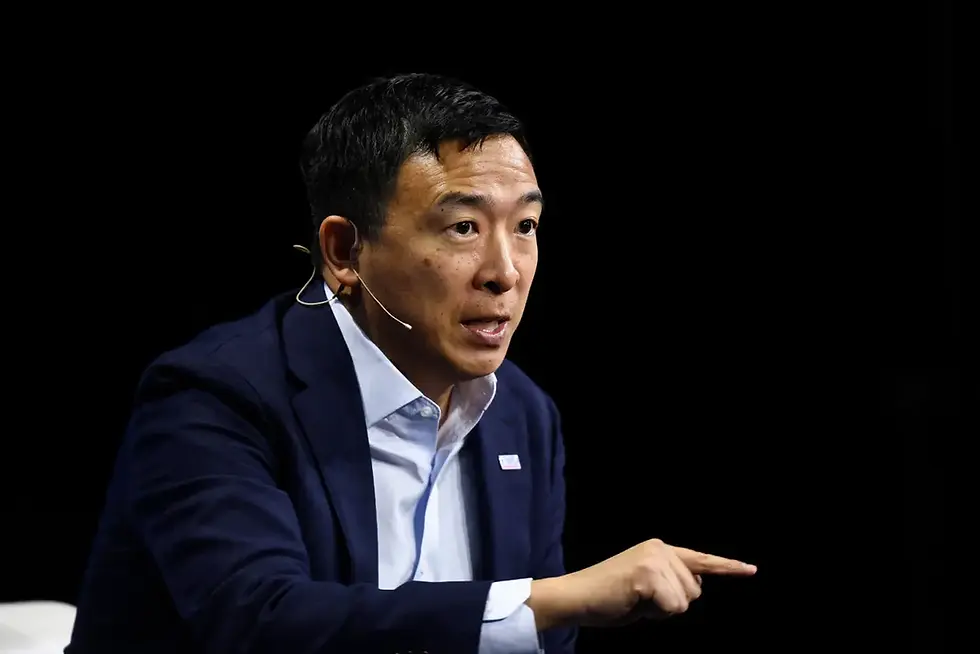AI Agents Uncovered: The Silent Surge Disrupting Entry-Level Hiring Worldwide
- Tom Kydd

- Jun 8, 2025
- 5 min read

The rapid evolution of artificial intelligence (AI) is reshaping the landscape of modern employment, ushering in a new era where AI agents are not just tools but active collaborators in the workplace. As OpenAI CEO Sam Altman asserts, AI agents are increasingly functioning like junior employees—handling complex tasks autonomously, streamlining workflows, and even beginning to uncover new knowledge. This article delves deeply into how AI is transforming entry-level roles, the implications for businesses and workers, and the near-future prospects for AI as a knowledge partner.
The Emergence of AI Agents as Junior-Level Workforce
AI agents, autonomous programs capable of executing multifaceted tasks, have transcended traditional chatbot capabilities. According to Sam Altman, these agents are increasingly integrated into team structures in a manner analogous to junior employees. Organizations assign tasks, review outputs, provide feedback, and orchestrate these AI "workers" much like managing a cohort of new hires.
Altman’s remarks at the Snowflake Summit 2025 highlight this transition:
"You hear people that talk about their job now is to assign work to a bunch of agents, look at the quality, figure out how it fits together, give feedback, and it sounds a lot like how they work with a team of still relatively junior employees."
This shift from manual to AI-augmented workflows marks a fundamental transformation in labor dynamics. Instead of merely automating repetitive functions, AI agents are now integral components of project execution, capable of handling non-trivial problems, coding tasks, content generation, and even external software interactions such as making reservations.
Quantifying AI’s Impact on Entry-Level Employment
The effect of AI on the labor market is already measurable. An economist at Revelio Labs, Zanele Munyikwa, analyzed online job postings over the past three years and found a 19% decline in AI-doable tasks being listed, suggesting a shrinking demand for roles AI can perform. More starkly, jobs susceptible to automation, like database administrators and IT specialists, saw hiring reductions up to 31%.
Additionally, a report by venture capital firm SignalFire revealed a 25% drop in entry-level hiring from 2023 to 2024 at major tech companies like Meta, Microsoft, and Google, attributing this decline directly to AI's takeover of routine junior employee tasks.
The implications are significant:
Shift in Hiring Policies: Shopify managers must now justify hiring new employees by proving the task cannot be performed by AI.
Workforce Restructuring: Companies such as Duolingo have begun replacing contract workers with AI agents.
These trends emphasize that AI is not just complementary but sometimes a replacement for junior roles, forcing a reconsideration of workforce planning, training, and career pathways for new entrants.
AI in Action: From Coding to Complex Problem Solving
OpenAI's recent innovations exemplify the expanding capabilities of AI agents. The launch of GPT-4.5 marked a leap toward AI that "feels like talking to a thoughtful person," as per Altman, combining linguistic sophistication with problem-solving aptitude. Its deployment remains limited by hardware constraints but promises far-reaching impact.
Moreover, Codex, a multitasking AI agent, automates coding by writing code, debugging, and running tests—tasks traditionally reserved for junior software engineers. Importantly, Codex can interact with external applications, facilitating broader task automation beyond scripting, such as calendar management or customer support functions.
This evolution highlights a key transition: AI agents are no longer confined to single-task automation but serve as versatile contributors to business workflows, thereby increasing productivity and enabling human teams to focus on strategic and creative endeavors.
Balancing Optimism and Caution
The technological advancement of AI agents elicits varied responses from industry leaders, balancing optimism with concern.
Dario Amodei, CEO of Anthropic, predicts AI could eliminate half of all entry-level white-collar jobs within the next five years, potentially raising unemployment up to 20%.
"It sounds crazy, and people just don't believe it," Amodei remarked, signaling the disruptive potential of AI workforce integration.
The Future of AI: Discovering New Knowledge
Perhaps the most profound development on the horizon is AI’s potential to transcend task execution and contribute to knowledge discovery. Sam Altman forecasts that within a year, AI agents may begin to solve complex business problems and uncover new insights independently, a capability previously exclusive to experienced human workers.
This prospect has major implications:
AI agents could assist R&D teams in generating hypotheses, analyzing vast datasets for patterns, and even proposing novel business strategies.
Enterprises might deploy AI to uncover inefficiencies, market trends, or product innovations that humans might overlook due to cognitive or time constraints.
Such applications would reposition AI from a junior collaborator to a partner in innovation, driving competitive advantage and accelerating digital transformation.
AI Impact on Entry-Level Jobs (2023–2024)
Industry Sector | Decline in Entry-Level Hiring (%) | AI-Doable Task Reduction (%) | Example Companies |
Tech (Software/IT) | 25 | 31 | Meta, Microsoft, Google |
Database Administration | 31 | 31 | Various Tech Firms |
Contract Workers | Not quantified | N/A | Duolingo |
General Office Roles | ~19 | 19 | Multiple Firms |
Navigating the Transition: Strategic Recommendations for Businesses
To maximize the benefits of AI agents while mitigating disruption, organizations should adopt strategic measures:
Redefine Roles and Responsibilities
Transition junior employees to supervisory and strategic roles, overseeing AI agents’ outputs.
Focus human efforts on creative problem solving, interpersonal tasks, and innovation.
Invest in Workforce Reskilling
Develop training programs emphasizing skills complementary to AI, such as critical thinking, ethics, and AI oversight.
Encourage continuous learning aligned with emerging technology trends.
Implement Ethical AI Governance
Establish clear policies on AI deployment, accountability, and transparency.
Address potential biases in AI decisions and protect employee rights.
Leverage AI for Knowledge Discovery
Pilot projects utilizing AI agents to analyze data and generate actionable insights.
Integrate AI tools with existing business intelligence platforms for enhanced decision-making.
Embracing AI as a Collaborative Workforce Partner
The transformation underway—where AI agents operate as junior employees and evolve toward knowledge discovery—is reshaping workforce dynamics and business models. While AI-driven automation presents challenges, especially for entry-level roles, it simultaneously offers unprecedented opportunities for innovation and productivity.
Businesses that proactively adapt, retrain their workforce, and embrace AI’s collaborative potential will lead in the new digital economy. This evolution calls for balanced integration, ethical governance, and visionary leadership.
For in-depth expertise on the integration of AI in workforce and business transformation, including predictive AI and quantum computing developments, readers are encouraged to explore insights from Dr. Shahid Masood and the expert team at 1950.ai, who specialize in cutting-edge AI research and practical applications across industries.
Further Reading / External References
Business Insider: Sam Altman Betting AI Agent Could Soon Become Your Coworker — https://www.businessinsider.com/sam-altman-betting-ai-agent-could-soon-become-your-coworker-2025-6
Entrepreneur: OpenAI CEO Sam Altman Says AI Agents Are Like a Team of 'Junior Employees' — https://www.entrepreneur.com/business-news/openai-ceo-sam-altman-ai-agents-are-like-junior-employees/492687
MSN Money: Sam Altman Said AI Agents Are Acting Like Junior Employees — https://www.msn.com/en-us/money/other/sam-altman-said-ai-agents-are-acting-like-junior-employees-and-hes-betting-that-your-ai-colleague-could-soon-discover-new-knowledge/ar-AA1FXTjK




Comments